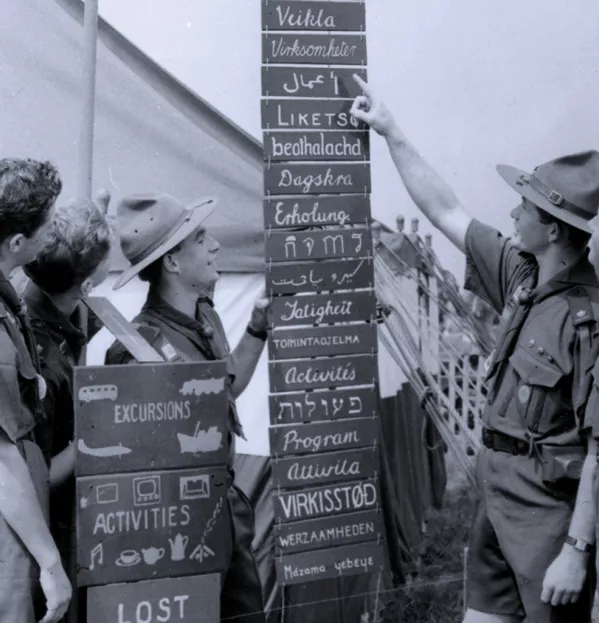Why asking struggling pupils to take a language GCSE early is a winner

Learning languages didn’t come easy to Jack when he first joined secondary school. Ordinarily, he would have dropped the subject when he was choosing which GCSEs to study at key stage 4. So imagine his delight that he’d already notched up a Spanish GCSE by the end of Year 9, two years before his more proficient friends would have the opportunity to do the same.
His impressive achievement was made possible by the unconventional system we have implemented at Rushcliffe School, which allows struggling pupils the chance to study for their Spanish GCSE in Years 8 and 9. Asking teenagers to sit what is supposed to be one of the hardest GCSE subjects two years early may seem a little crazy - even more so when you consider the pupils in question are the ones who are struggling the most with the subject - but there is method in our madness.
Britain is at the back of the queue in terms of language skills. Why? Because children here don’t study languages as early, as often or for as long as those in other countries. Despite endless changes in policy, the UK simply does not invest in language learning.
But at Rushcliffe we don’t buy into the idea that learning a language is only for a handful of very academic students who are able to leap over the education system’s barriers - delayed exposure to learning languages and limited timetable allocation. We decided to turn things around and commit to ensuring that as many students as possible get a language qualification, without it impacting on their GCSE choices at key stage 4. So how does it work?
We first discussed the idea of introducing early entry for middle- and lower-ability groups back in 2012, and I must admit that even I was unsure whether it would work. Would it be too demanding? Would these pupils be too young to cope with the pressures of studying for a GCSE? We were spurred on by our head’s enthusiasm; he was completely behind it and prepared to devote twice the amount of time to MFL. So we grabbed the proverbial Spanish bull by the horns.
Boosting self-esteem
At first, we didn’t tell our pupils what we were doing because we didn’t want to put any unnecessary pressure on them. We began with the Year 8s and used a process that was designed to make learning tenses quicker. We stripped the language right back to basics to make it simpler, and we focused on topics that gave us plenty of opportunities to revisit and consolidate these core structures.
The benefits of having four hours of teaching a week soon became obvious, not just for learning but also because it gave us the chance to build closer relationships with our pupils.
At the beginning of Year 9, we officially launched the GCSE campaign and told parents. They all saw it as a win-win situation. We said to them: “By the end of Year 11 your child will have an extra GCSE. If they wish to continue with Spanish at KS4, they can.”
But the real secret of our success is teamwork. Walk through the MFL corridor in the few weeks before the Spanish oral exams and you might not be impressed by the tired 1960s building, but you’ll notice the studious atmosphere. Classrooms are packed with Year 9s revising while eating their lunch. They receive encouragement not only from the teachers but also from the Year 12 Spanish students, who help them with their revision. Far from knocking their confidence, we’ve found that this actually improves self-esteem among those pupils who need it the most. An early-entry student at Rushcliffe is seen as a shining star in the Spanish department. The seriousness of a GCSE qualification gives her or him a true sense of purpose. It has also led to a significant improvement in learning behaviour among Year 9s.
And the results have been amazing. Eighty per cent of our students now leave school with a modern language GCSE under their belts, compared with the national average of just under 50 per cent. What’s been even more heart-warming is that the majority discover a new enthusiasm for languages, and many surprise us by continuing with Spanish in Year 10 and 11 in a bid to get top grades.
Of course, studying for a GCSE at KS3 does require a certain degree of selflessness from the school. For as long as we have been running the course, resits have not counted towards school performance data, so if students do continue with Spanish at KS4 and get a higher grade, we don’t receive any credit for it. And under new rules, early entries won’t count any more either.
Another challenge will be the move to linear GCSEs. As happy as we are to see the back of controlled assessments, there is no doubt that their measurability has helped early-entry students by making success tangible at each point along the way. We must now think about how we can continue to give them a positive experience. Despite these new barriers, we at Rushcliffe will carry on making this work because we know how much it means to our students.
Eva Vicente is head of MFL at Rushcliffe School in Nottingham
You need a Tes subscription to read this article
Subscribe now to read this article and get other subscriber-only content:
- Unlimited access to all Tes magazine content
- Exclusive subscriber-only stories
- Award-winning email newsletters
Already a subscriber? Log in
You need a subscription to read this article
Subscribe now to read this article and get other subscriber-only content, including:
- Unlimited access to all Tes magazine content
- Exclusive subscriber-only stories
- Award-winning email newsletters